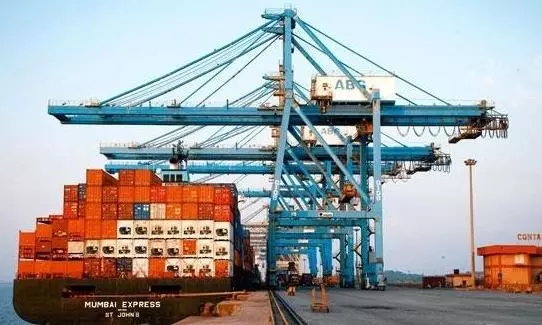Lok Sabha passes Indian Ports Bill 2025 for modern maritime governance
The bill will modernise port governance, improve trade efficiency, and strengthen India’s position in global maritime trade.

The Lok Sabha has passed the Indian Ports Bill, 2025, which replaces the Indian Ports Act, 1908, to modernise port governance, improve trade efficiency, and strengthen India’s position in global maritime trade. Introduced by Union Minister of Ports, Shipping and Waterways Sarbananda Sonowal, the bill aims to simplify port procedures, digitise operations, ensure uniform safety standards, and promote sustainable port development across the country.
The legislation is designed to reduce logistics costs, speed up cargo movement, and enhance connectivity through integrated planning and hinterland linkages. It also incorporates green initiatives, pollution control measures, and disaster management protocols in line with international maritime conventions. Exporters and MSMEs are expected to benefit from streamlined processes and better infrastructure.
“This bill marks a decisive step toward making India’s ports globally competitive while safeguarding the environment and empowering coastal communities. It embodies the Honourable Prime Minister Shri Narendra Modi's vision of ‘Ports for Prosperity’ and ensures our maritime sector remains future-ready,” said Sonowal.
The bill gives ports greater autonomy to set tariffs within a transparent framework, provides flexibility in funding through public-private partnerships and foreign investments, and envisions stronger coastal shipping integration with inland waterways and multimodal transport systems.
A key provision is the creation of the Maritime State Development Council (MSDC), comprising representatives from the central and state governments, to coordinate national port development. State Maritime Boards will manage non-major ports, while Dispute Resolution Committees will address conflicts between ports, users, and service providers.
“The bill also aims to boost cooperative federalism, as the Maritime State Development Council (MSDC) is aimed at ironing out differences and laying down a smooth way forward for the holistic development of our ports,” Sonowal added.
Safety measures under the bill mandate waste reception facilities, pollution prevention protocols, renewable energy use, and emergency preparedness at all ports. The legislation builds on initiatives such as Sagarmala and Maritime India Vision 2030 to align India’s maritime sector with global trade practises and position it for long-term sustainable growth.



